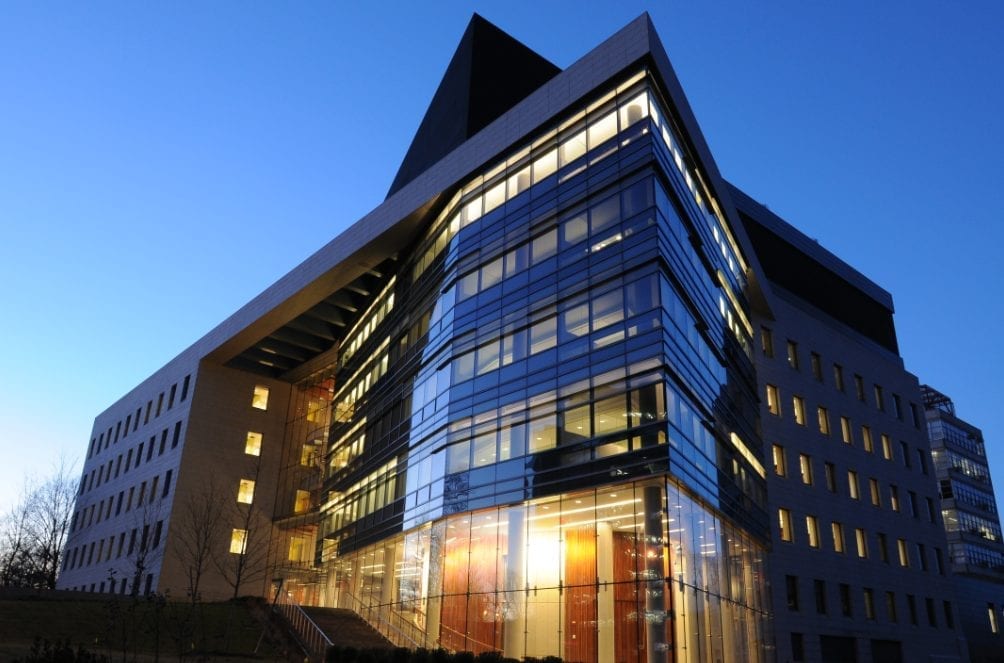Pacific College of Oriental Medicine’s New York campus is actively working on three different research projects in collaboration with Albert Einstein College of Medicine and Montefiore Hospital, each with a grant from a different agency, led by Dr. Belinda Anderson, Academic Dean at PCOM-NY. Grant approval rates for the National Institutes of Health (NIH), Patient-Centered Outcomes Research Institute (PCORI), and Health Resources and Services Administration (HRSA) are very low–only 8%, 12%, and 13% respectively—as the US is overproducing PhDs and research funding and positions are extremely competitive.
PCOM’s relationship with the Albert Einstein College of Medicine, nearly a decade old and sparked by an educational exchange program, is part of a general push for greater interprofessional education. PCOM students work in Einstein’s cadaver dissection lab, and Einstein’s students shadow practitioners in a real-world Chinese medicine clinic. As medical disciplines intertwine ever closer in an increasingly integrative world, knowledge of the work of other practitioners becomes more crucial, allowing better determinations of cause and effect, better diagnoses, and more useful referrals from one discipline to the next.
In 2011, Einstein approached PCOM concerning a partnership for research grants. At the time, PCOM did not have any research programs, as it is usually an expensive, risky proposition. As some funding is exclusively restricted to partnership grants, PCOM and Einstein needed each other; such a partnership also serves to strengthen the bond between the two schools. “Applying for grants takes a lot of work, and since the success rate is so low, I was nervous at first,” said Dr. Belinda Anderson of PCOM-NY, principle investigator on the NIH grant, and a co-investigator on the PCORI and HRSA grants. While a portion of the NIH grant does overlap with her duties as Dean at the school, Anderson has devoted a large portion of her time over the past few years to work on these grants.
PCOM and Einstein submitted two grants to NIH. The first NIH grant was approved. It runs from 2013 to 2018, directly benefiting everyone at Pacific College through training in evidence-based medicine. Students learn how to take a systematic, critical approach to medicine and treating patients. The program encourages diverse and novel approaches to treatment through analysis of research studies, followed by application of a combined understanding of science and Chinese medicine in practice. Through consideration of multiple perspectives, this also aids in explaining and marketing TCM practices to patients.
Are you interested in becoming a certified acupuncture professional?
Visit the links below to explore our specialized acupuncture programs at a campus near you:
The second application for an NIH grant was not successful with NIH, but went on to have a second life in a slightly modified version as a PCORI grant application. This application was accepted, aided by PCOM’s previous work with PCORI on community-style acupuncture. It is a clinical trial running from 2014 to 2017, focused on the outcomes of community-based acupuncture as compared to individual acupuncture in the Montefiore hospital system in the Bronx, a medically underserved population. PCORI favors trials like these as they tend to be studied less often. Most treatments are for chronic pain, back pain, neck pain, and symptoms of osteoarthritis, followed up with interviews and surveys on effectiveness and patients’ experiences.
The final grant, from HRSA, began development in autumn 2015. PCOM will be a training site for residents through Einstein, an unusual setting for most residents. Residents will be co-teaching a course on the diagnosis and treatment of diseases, which will consider disorders from both TCM and biomedicine perspectives. The residents will present from the biomedical side, then learn from the TCM side. Residents will also actively participate in the clinic, interpreting and evaluating patients’ biomedical perspectives and records in collaboration with TCM practitioners, and teach seminars on contemporary issues in medicine such as considerations for transgender populations.
Featured Posts:
